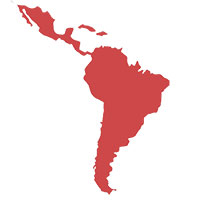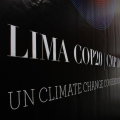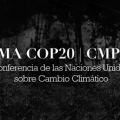Climate Change and Health in Lima
admin | December 7, 2014.
World Bank vice-president and special envoy on climate change, Rachel Kyte, addressed a climate change and health summit in Lima. “Climate change will put strain on every one of the systems in which we depend on, but will have the greatest impact on health,” she said.
Throughout the summit, that’s organised outside of the official UN climate change process that Lima is currently hosting, speakers urged for the inclusion of health as a focal point for resilience within the UN Framework Convention on Climate Change (UNFCCC) process in the lead up to Paris.
Health care systems and communities will need to adapt to shifting areas of disease as a result of both changing climates, as well as the resulting consequences; including flooding and the ability for viruses to move to new environments.
Kristie Ebi, lead author on health for the the Intergovernmental Panel on Climate Change (IPCC), reaffirmed the risks that climate change will have on vulnerable communities with 85 per cent of health effects impacting children. Air pollution now is more common than cigarettes for infant mortality, a statistic that should push the conversation along because children’s health is something everyone is concerned about according to Kyte.
Medical professionals are excited by the potential of using health as a vehicle to translate climate change science into everyday examples. The science on climate change is clear with numerous IPCC repeated findings, as is the case for action, economically according to the World Bank. What’s missing is the political will.
“The reason health is not in the UNFCCC is because developing countries have not fought for it to be there,” explained Kyte.
For too long economics and politics have dominated the UN climate change scene, and it’s time for health to be included. Investment in a greener economy will have immense benefits to air quality, which will then, in turn, benefit health.













comment